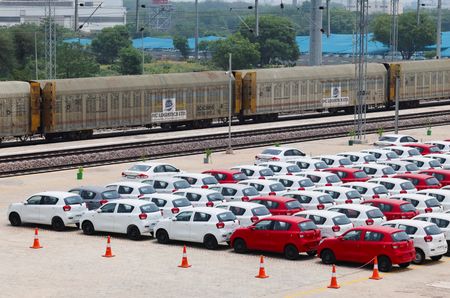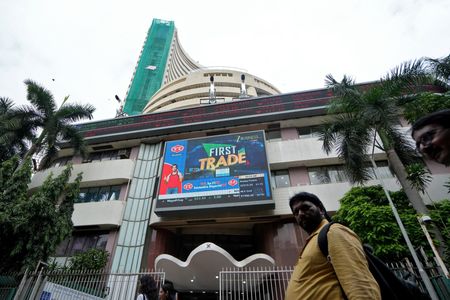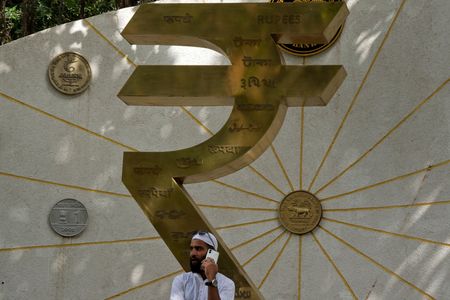By Nikunj Ohri, Aftab Ahmed and Aditi Shah
NEW DELHI (Reuters) -India aims to slash taxes on small cars and insurance premiums as part of a sweeping reform of its goods and services tax (GST), a government source said on Monday, sparking a rally in Indian stock markets.
Prime Minister Narendra Modi’s administration revealed plans over the weekend for the largest tax overhaul since 2017, with consumer, auto and insurance companies likely to emerge as the biggest winners when product prices drop from October, once the reform is approved.
The federal government has suggested lowering GST on small petrol and diesel cars to 18% from the current 28%, said the source who is directly involved in the matter.
The consumption tax on health and life insurance premiums may also be lowered to 5% or even zero from 18% currently, the same source said.
Shares of Maruti Suzuki, the biggest seller of small petrol cars in India, surged nearly 9% on Monday, leading a rally in auto shares that helped push India’s benchmark Nifty index 1.3% higher, on course for its best day in three months.
Shares of other carmakers such as Mahindra & Mahindra, as well as motorbike manufacturers like Hero MotoCorp and Bajaj Auto, which will also benefit from tax cuts, jumped 2%-4% on Monday.
Stocks of insurance companies such as ICICI Prudential, SBI Life, and LIC rose as much as 2%-5% before pairing some gains.
Modi’s deep tax cuts will strain government revenues but have drawn praise from businesses and political pundits who say they will bolster his image in an ongoing trade fight with Washington.
Maruti Chairman R.C. Bhargava said the tax rationalisation is a “huge reform”.
“With more affordability, more people will come into the purchasing system,” said Bhargava, who declined to comment on proposed tax cuts on small cars until the fine print is out.
“This restructuring of the GST will increase competitiveness of Indian products and the opening of trade borders will bring in the necessary competition. Competition, combined with your ability to produce and sell at lower prices, makes for the best efficiency,” he added.
Federal government officials over the weekend said New Delhi has proposed only two rates of taxation — 5% and 18% — under the revamped structure. The highest 28% rate will be abolished.
The new proposal, however, will impose a 40% tax on 5-7 “sin-goods” like tobacco products and luxury items.
The announcement will not be effective until the GST Council, which is chaired by the federal finance minister and has representatives from all states, gives a nod. A meeting is expected by October.
India’s finance ministry did not reply to an email seeking comment.
PUSH FOR SMALL CARS
Sales of small cars, defined as those having engine capacity below 1200cc for petrol vehicles and 1500cc for diesel and not exceeding 4 metres in length, have slowed over the last few years as buyers switched to bigger, feature-rich SUVs.
Small cars made up a third of the 4.3 million passenger vehicles sold in the world’s third-largest automobile market last fiscal year, down from nearly 50% pre-COVID, industry data showed.
The segment makes up half of all cars sold by Maruti, majority-owned by Japan’s Suzuki Motor, which saw its market share plunge to about 40% from over 50% in the last five years as sales of its Alto, Dzire and Wagon-R models dropped.
Carmakers Hyundai Motor India and Tata Motors also stand to gain.
Cars with higher engine capacity that currently attract 28% GST and an additional levy of up to 22% – resulting in total taxes of about 50% – may come under a new special rate of 40%, the source said.
The government source added that details are being firmed up to consider if any extra levies should be imposed over the 40% to keep the overall tax incidence for big cars the same at 43%-50%.
On the other hand insurance penetration in India continues to remain low, at 3.8% of GDP, in 2024, according to research firm Swiss Re Institute. The companies believe lowering of GST will help boost sales of insurance products.
(Reporting by Nikunj Ohri; Editing by Aditya Kalra, Raju Gopalakrishnan and Susan Fenton)












